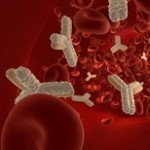Post-translational modifications such as phosphorylation, methylation, ubiquitination, and acetylation are crucial regulatory modules at the heart of biological processes in the cell and are tightly regulated by a multitude of enzymes. Histones are the chief protein components of chromatin, acting as spools around which DNA winds. The balance of histone acetylation and deacetylation is a critical role in the regulation of gene expression. Histone acetylation induced by histone acetyl transferases (HATs) is associated with gene transcription, while histone hypoacetylation induced by histone deacetylase (HDAC) activity is associated with gene silencing. Unlike acetylation, histone lysine methylation can signal either activation or repression, depending on the site and degree (mono-, di-, or tri-) of methylation.
HDACs also regulate the acetylation status of a variety of other non-histone substrates, including key tumor suppressor proteins …
GSK-3 (glycogen synthase kinase) is a multifunctional serine/threonine kinase that is active all the time in all cells, but particularly highly in the brain. GSK-3 was originally named for its ability to phosphorylate and inactivate glycogen synthase and regulate glucose metabolism. As genes and proteins are discovered, they are often ascribed names based on function—their function at the time of discovery. GSK-3 turned out to be a multifunctional enzyme, able to phosphorylate many proteins. Phosphorylation of the protein acts as a molecular switch, turning the activity on or off. GSK-3 has many phosphorylation targets. It should therefore not be surprising that GSK-3 has both pro- and antiapoptotic roles.
GSK-3 is presently known to be a key regulator of a wide range of cellular functions. GSK-3 regulates numerous cellular processes through …
 Our immune system is an intricate system of defenses that distinguishes between foreign substances within the body from healthy cells, when properly functioning. Nearly 90% of people see their immune system as their body’s most specialized defense mechanism in preventing illness, making the idea of “immune boosting” an appealing concept. It sounds simple and desirable. Can you boost immunity? So what Can You Do? It’s a completely invalid analogy.
Our immune system is an intricate system of defenses that distinguishes between foreign substances within the body from healthy cells, when properly functioning. Nearly 90% of people see their immune system as their body’s most specialized defense mechanism in preventing illness, making the idea of “immune boosting” an appealing concept. It sounds simple and desirable. Can you boost immunity? So what Can You Do? It’s a completely invalid analogy.
Attempting to boost the cells of the immune system is especially complicated because there are so many different kinds of cells in the immune system that respond to so many different microbes in so many ways. Which cells should you boost, and to what number? So far, scientists do not know the answer. …